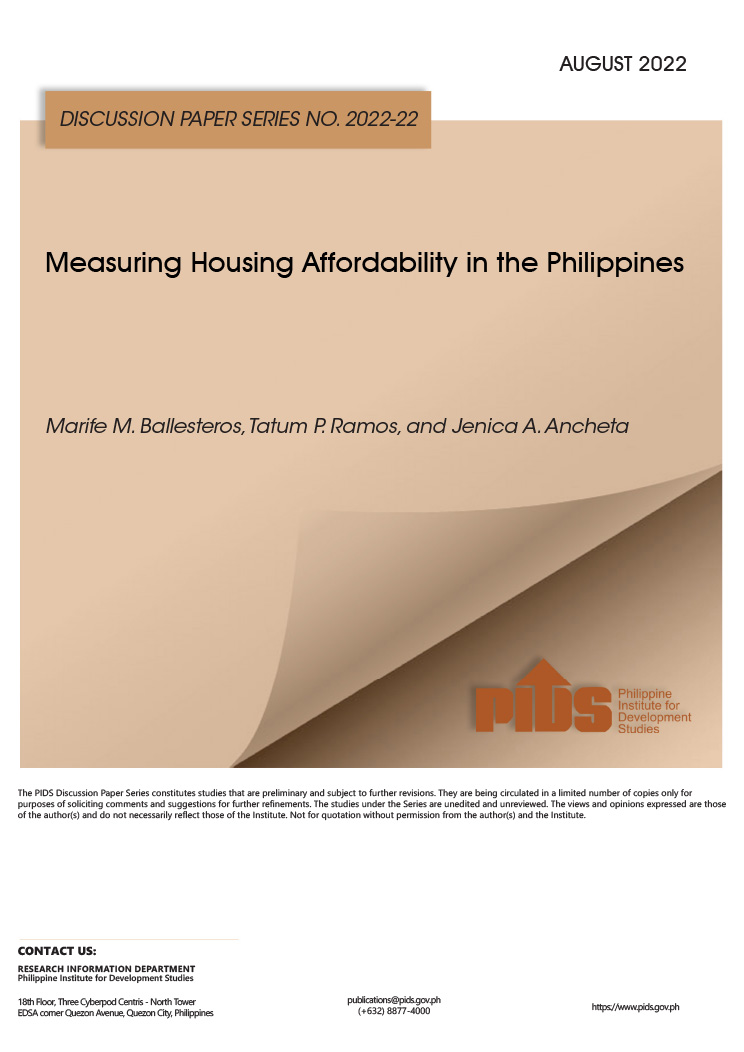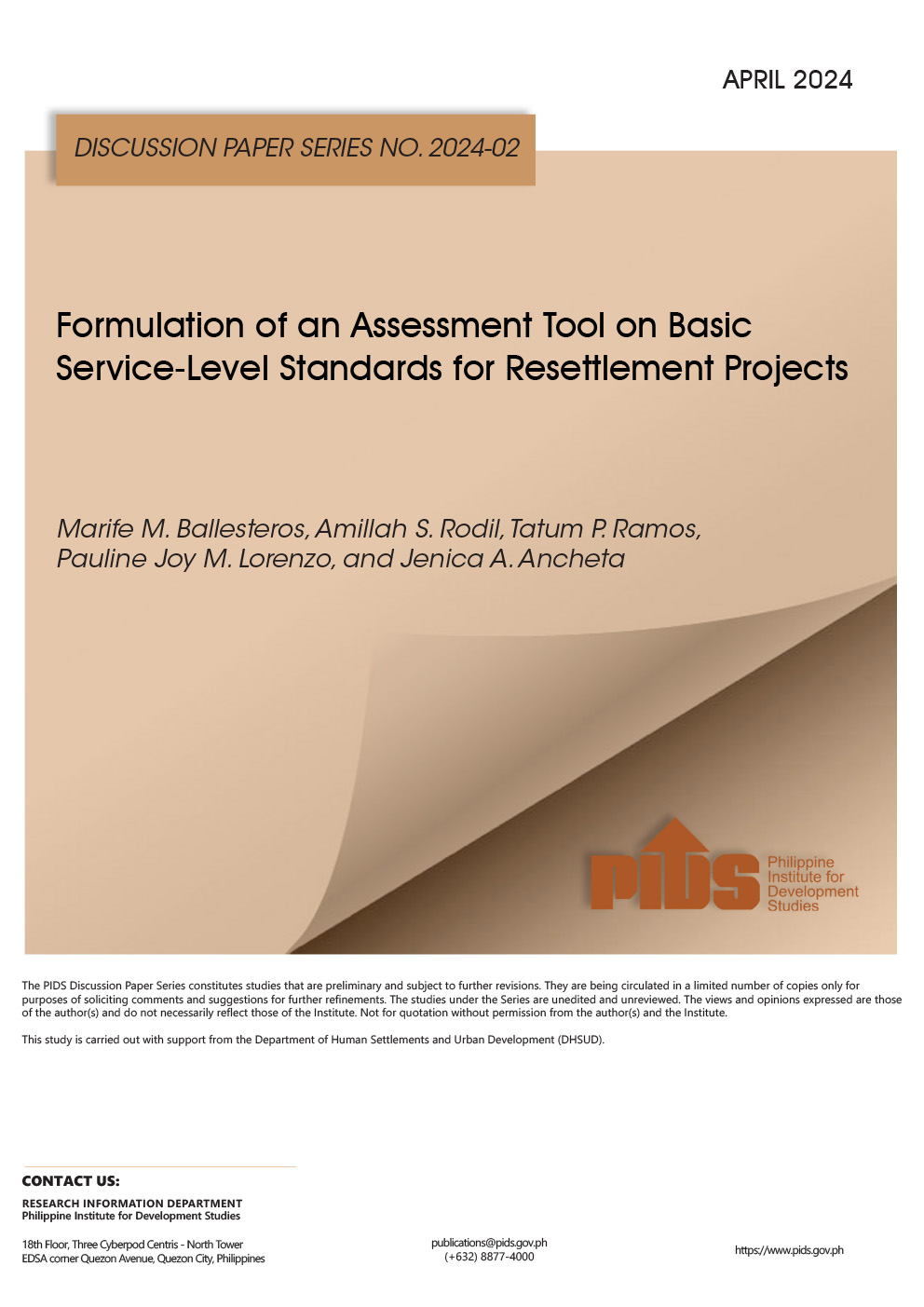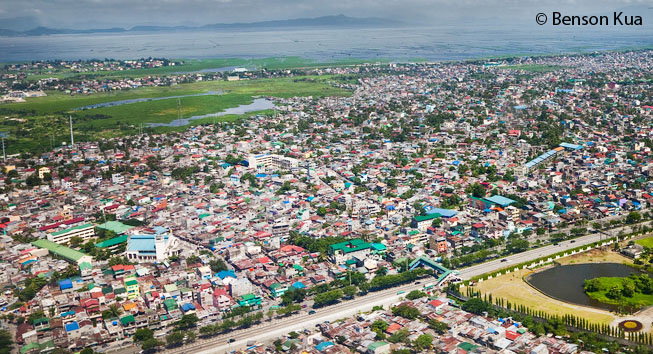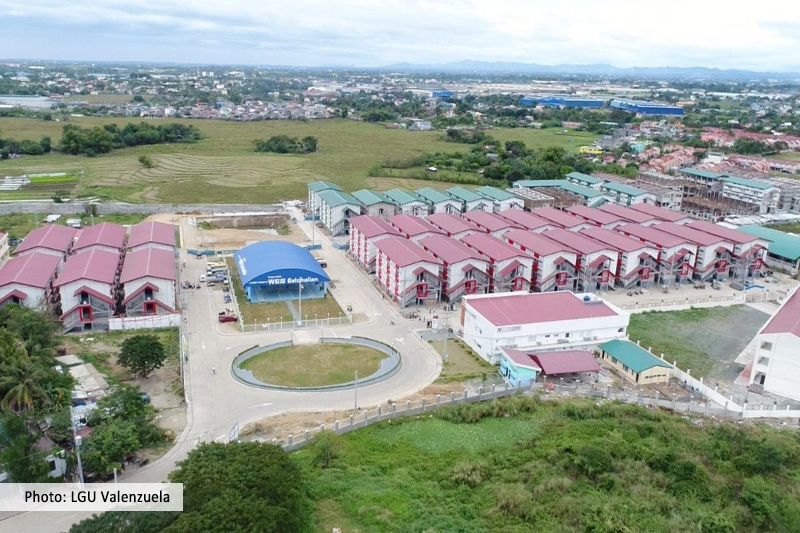The government is urged to re duce the share of public funds al located for the reconstruction of
private properties damaged in natural disasters and to instead strengthen the capacity of the private sector to address damages.
In a recent policy note, state think tank Philippine Institute for Development Studies (PIDS) said that while housing is mainly a private good, housing programs have been a huge component of post disaster reconstruction budgets.
PIDS said it is necessary to al lot less public funds to the reconstruction of private properties because the government is already hard-pressed for funds for other post-disaster projects.
“The government should reduce the share of public funds al located to private properties. Given that the housing sector is largely private, the fact that it is receiving the bulk of resources may possibly be at the expense of more critical projects. Instead of allocating huge funds to it, the government should consider strengthening the role of the private sector in ad dressing damaged proper ties,” said the policy note.
To illustrate the extent of public spending for private properties, the state policy research body said out of the total budget of P10.5 billion for post-disaster budget for areas affected by Typhoon
Pablo in 2012, P4.2 billion was al located for in-city housing projects of the Department of Social Welfare and Development (DSWD) and P4.1 billion for the re settlement projects of the National Housing Authority (NHA).
The same was seen in the after math of Typhoon Yolanda in 2013 in which P75.7 billion out of a total budget of P170.9 billion was al located for re settlement.
PIDS said despite the huge bud get, program out comes for housing post-dis aster “have not been encouraging.”
In the reconstruction efforts post Typhoon Pablo, all bud get allocations were already released less than a year after the disaster, but housing projects completed were mainly those implemented by the DSWD in partnership with provincial governments.
NHA, on the other hand, had issues on the completion of targets and the delivery of housing units to target beneficiaries.
PIDS said that as of September 2016, NHA completed only 15,979 out of a target of 17,480 units. Out of this, only 5,891 units have been awarded and 3,696 units have been occupied.
In the case of Super Typhoon Yolanda, merely 30,000 out of the 205,000 required housing units have only been completed.
As funding is not a problem for housing projects, PIDS said the de lays in deliveries were caused by the following: poor quality of housing units and un suit able sites of resettlement projects; the lack of basic facilities at re settlement sites of NHA and DSWD, the weak coordination among NHA, local government units, and end users during project planning and implementation; and problems in finding suit able land for low-cost housing and titled lands for procurement purposes.
PIDS said the NHA should revisit its policies and look into models from overseas. “The NHA should also veer away from the traditional policies and learn from the lessons and experiences of other countries with regard to shelter programs in times of disaster,” said the paper.











